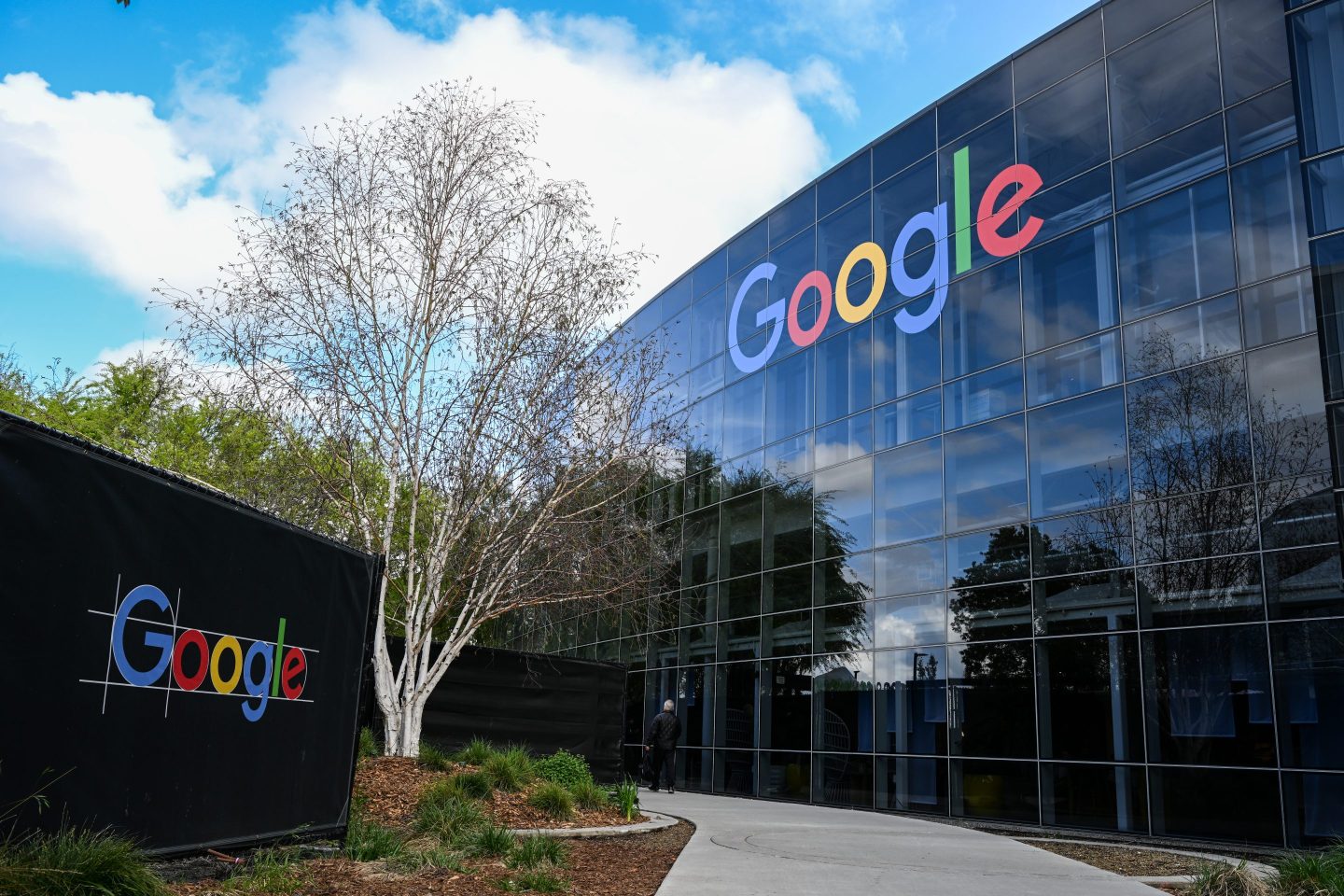The U.S. election was the news event of the year around the world, according to Google’s annual “top trending searches” findings.
That’s no surprise—though in these crazy times, it’s worth noting that there are still a few weeks to go. So what else was on the list? Inside Out 2 and Kendrick Lamar’s “Not Like Us” were the top-trending movie and song respectively, and the biggest sports searches were for “Copa América” and the “UEFA European Championship.”
If your weary mind can stretch as far back as August, you may recall why “demure meaning” was trending. —David Meyer
Want to send thoughts or suggestions to Data Sheet? Drop a line here.
Google’s new quantum chip

Google has unveiled a new quantum chip, called Willow, that its own researchers claim is capable of “mind-boggling” performance.
That claim was specifically about Willow performing a very special kind of computation in under five minutes, where the fastest supercomputers—based on classical computing technology—would take 10 septillion (1025) years.
Does that bring us closer to quantum computing’s promise of revolutionizing scientific research? Not much. Experts point out that useful applications of quantum computing would require million-qubit machines (qubits are quantum’s information-processing units, like classical bits) and Willow only boasts 100.
The random circuit sampling (RCS) benchmark that Google used is known to be very tricky for conventional computers, and has no real-world use.
That said, Google has also now demonstrated that it “can reduce errors exponentially as we scale up using more qubits”—this is known as being “below threshold,” and it essentially means that Google is making real progress on error correction, and therefore may be inching closer to commercial quantum computing.
China probes Nvidia
China’s antitrust authority is investigating Nvidia, state media has announced.
Some are seeing this as China’s latest response to the U.S.’s attempts to hamstring its chip sector, days after China placed further restrictions on the export of minerals needed by the industry. China's state media insists this is not the case.
Specifically, the Chinese watchdog is reportedly looking into Nvidia’s acquisition of the Israeli-American networking firm Mellanox back in 2020. To ensure Chinese approval, Nvidia promised at the time to keep supplying Chinese customers with GPUs and Mellanox's equipment—this is now tricky, due to U.S. export restrictions.
The U.S. Department of Justice is also reportedly investigating Nvidia over potential antitrust violations. Europe’s competition authorities have noted a “huge bottleneck” in the supply of Nvidia’s industry-leading AI chips, but haven’t announced any action yet.
Stability stability
Stability AI went through a rough patch earlier this year, with senior staff fleeing and clashes between then-CEO Emad Mostaque and investors ultimately leading to Mostaque’s departure.
But everything is hunky-dory these days, now-CEO Prem Akkaraju said at Fortune Brainstorm AI.
The Stable Diffusion-maker is seeing “triple digital growth," said Akkaraju, who joined the company in the wake of the aforementioned drama. “We have now a clean balance sheet, no debt, nothing.”
Akkaraju was joined by Greycroft Partners cofounder Dana Settle, one of the new board members, who called the turnaround “a miracle.”
Apple’s new payment competitors
Unless you live in Norway, you’ve probably never heard of the payment app Vipps—but it just made history.
Apple earlier this year ended a European Commission probe into Apple Pay (under the new Digital Markets Act competition law) by agreeing to give third-party developers access to the iPhone’s Near Field Communications “tap and go” chip.
Vipps just became the first payment app in the world to seize this opportunity, meaning iPhone-toting customers of various Norwegian banks can pay for stuff without using Apple Pay.
“We have fought for years to be able to compete on equal footing with Apple, and it feels almost surreal to finally be able to launch our very own solution,” said CEO Rune Garborg.
TikTok parent wants ban law pause
ByteDance has asked a D.C. appeals court to issue an injunction against a law forcing it to sell TikTok by Jan. 19 or effectively face a U.S. ban.
The same court on Friday upheld the law, rejecting TikTok and its parent’s argument that it violated the First Amendment’s free-speech protections.
Now, China-based ByteDance is arguing that the Supreme Court is likely to take its case, so the appeals court should temporarily block the law coming into effect—an event that would occur just before President-elect Donald Trump’s inauguration, and that would probably slash TikTok’s value.
The company also points out that Trump may well block the ban himself, as he has promised to do.
More data
—General Motors to stop funding its Cruise robotaxi business. It’s going to focus on self-driving tech for personal cars.
—OpenAI releases text-to-video model Sora for ChatGPT Plus and Pro users. Sam Altman’s firm pushes further into “multimodal” AI.
—Amazon's AI boss says concerns over the LLM wall are overblown. He also confirmed that Jeff Bezos is "very involved" in the company's AI efforts.
—Automattic acquires WPAI, a startup that makes AI products for WordPress. The WordPress.com company also recently bought a Grammarly competitor.
—Tesla lobbied U.K. to strengthen rules on carbon emissions from cars and lorries. Tesla gets on well with the government its CEO loves to hate.
—Health care executives are banking on AI to unburden doctors, make processes smoother, and save time. The hope is to reduce human error.
—Pitching investors is like the NFL draft says Colin Kaepernick—‘it only takes one’. The NFL legend is an AI entrepreneur now.











